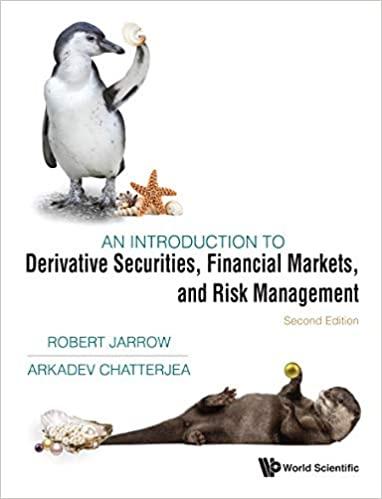Question
Sault Corp. has a new accounting co-op student who heard that the accounting for equity investments changes with the amount of shares held. The student
Sault Corp. has a new accounting co-op student who heard that the accounting for equity investments changes with the amount of shares held. The student needs to know the accounting differences beween two different scenarios and how Sault Corp. should record the transaction and balances if it owns different amounts of Halliday Ltd. shares as a long-term investment. Halliday Ltd. has a total of 35,000 shares outstanding. (Click the icon to view the chart.) Which accounting method should be used for this long-term investment? Journal entry to record purchase of shares at $44 each. No commissions. Journal entry to recognize share of $48,000 in dividends declared and paid. (Hold all decimals in interim calculations. Round your final answer to the nearest whole dollar.) Option A: 5,600 Shares Accounts Debit Credit Accounts Debit Credit Journal entry to recognize Under the Sault Ltd. entitled to net income $80,000 in net income declared by Halliday Ltd. declared by Halliday Ltd. Choose from any list or enter any number in the input fields and then continue to the next question. ? : Sault Corp. has a new accounting co-op student who heard that the accounting for equity investments changes with the amount of shares held. The student needs to know the accounting differences beween two different scenarios and how Sault Corp. should record the transaction and balances if it owns different amounts of Halliday Ltd. shares as a long-term investment. Halliday Ltd. has a total of 35,000 shares outstanding. (Click the icon to view the chart.) Journal entry to recognize the year-end market value of $43 per share. Accounts Debit Credit What is the balance in the investments account at year end? Option B: 15,750 Shares Which accounting method should be used for this long-term investment? Journal entry to record purchase of shares at $44 each. No commissions. Accounts Debit Credit Choose from any list or enter any number in the input fields and then continue to the next question. ? (Click the icon to view the chart.) Journal entry to recognize share of $48,000 in dividends declared and paid. (Hold all decimals in interim calculations. Round your final answer to the nearest whole dollar.) Journal entry to recognize $80,000 in net income declared by Halliday Ltd. (Hold all decimals in interim calculations. Round your final answer to the nearest whole dollar.) Accounts Debit Credit Accounts Debit Credit Journal entry to recognize the year-end market value of $43 per share. Under the Sault Ltd. need to make an adjustment for year-end market value. What is the balance in the investments account at year-end? Choose from any list or enter any number in the input fields and then continue to the next question. Screenshot saved The screenshot was added to your OneDrive. Sault Corp. has a new accounting co-op student who heard that the accounting for equity investments changes with the amount of shares held. The student needs to know the accounting differences beween two different scenarios and how Sault Corp. should record the transaction and balances if it owns different amounts of Halliday Ltd. shares as a long-term investment. Halliday Ltd. has a total of 35,000 shares outstanding. (Click the icon to view the chart.) Chart Journal entry to recognize share of $48,000 in dividends declared and paid. (Hold all decimals in interim calculations. Round your final answer to the nearest whole dollar.) Journal entry to recognize $80,000 in net income declared by Halliday Ltd. (Hold all decimals in interim calculations. Round your final answer to the nearest whole dollar.) Which accounting method should be used for this long-term investment? Journal entry to record purchase of shares at $44 each. Ignore brokerage commissions. Journal entry to recognize share of $48,000 in dividends declared and paid. Journal entry to recognize $80,000 in net income declared by Halliday Ltd. Journal entry to recognize the year-end market value of $43 per share. What is the balance in the investments account at year-end? Journal entry to recognize the year-end market value of $43 per share. Under the adjustment for ye What is the balance in the investments s account at year-end? Print Done - Option A: 5,600 Option B: 15,750 Screenshot saved The screenshot was added to your



Step by Step Solution
There are 3 Steps involved in it
Step: 1

Get Instant Access to Expert-Tailored Solutions
See step-by-step solutions with expert insights and AI powered tools for academic success
Step: 2

Step: 3

Ace Your Homework with AI
Get the answers you need in no time with our AI-driven, step-by-step assistance
Get Started


